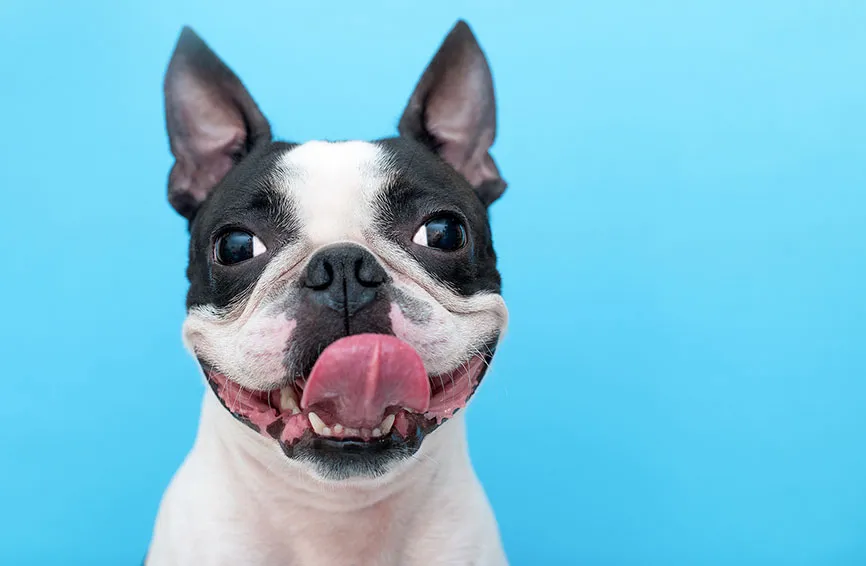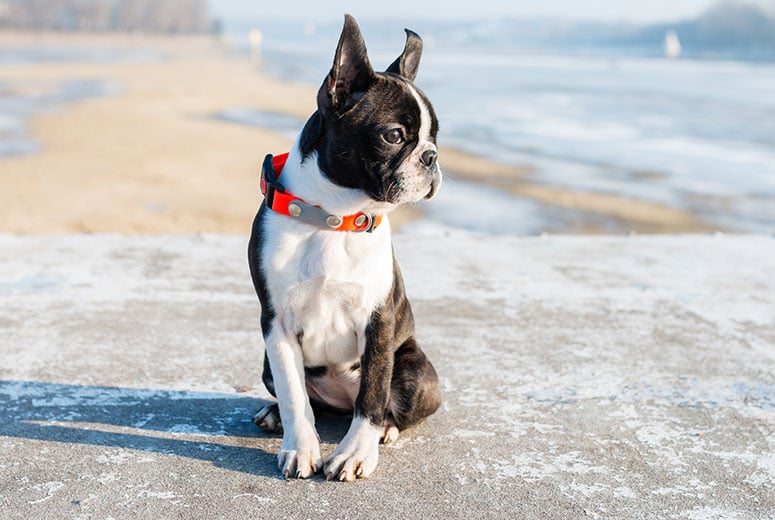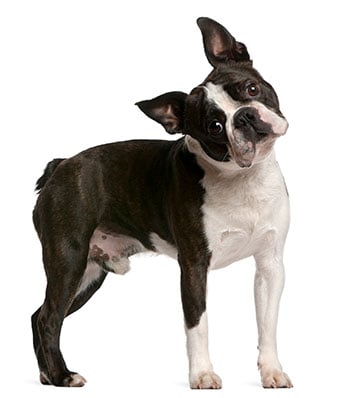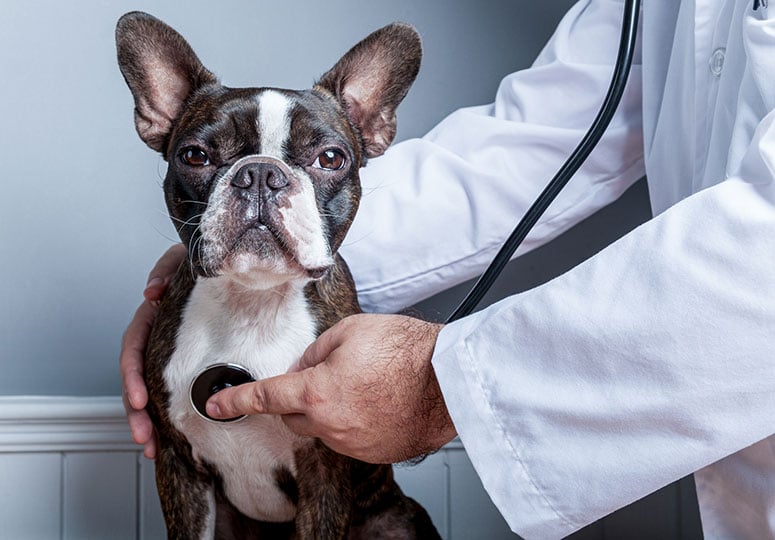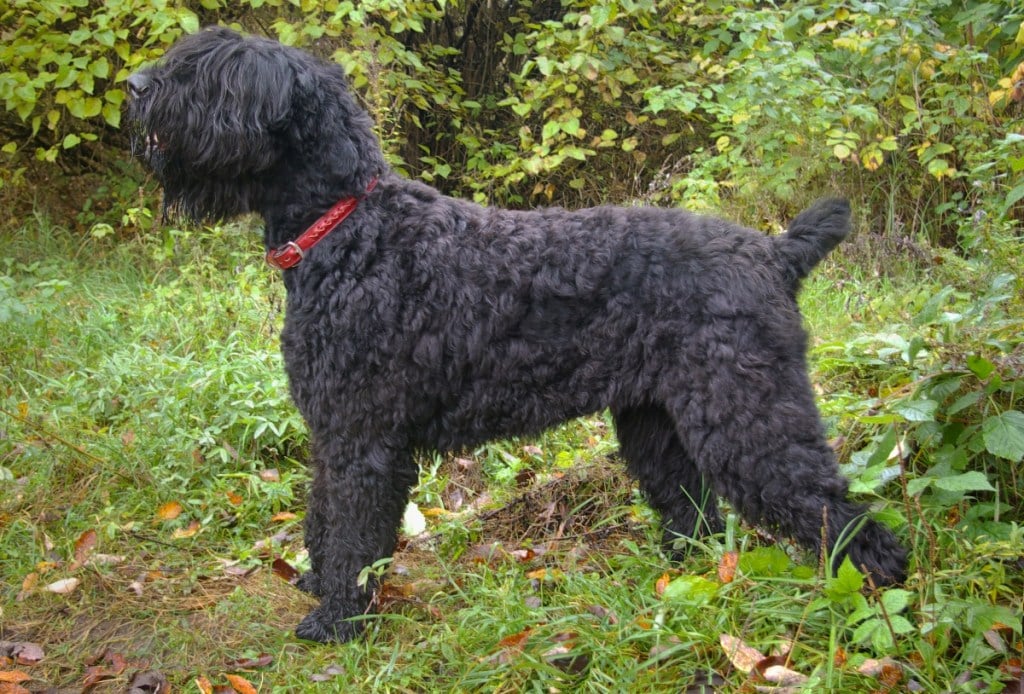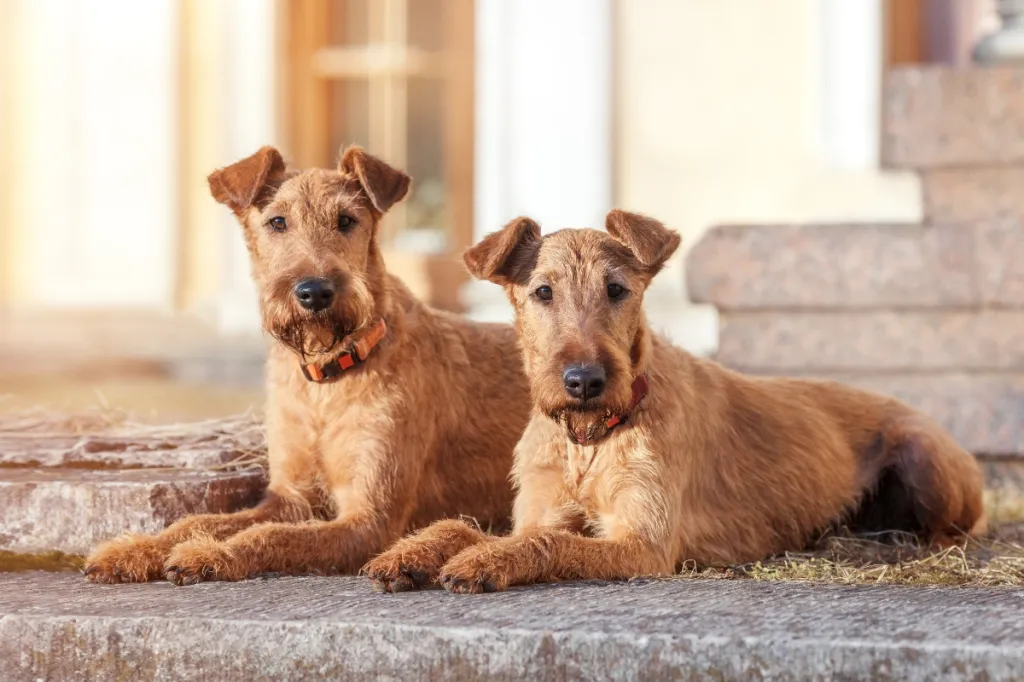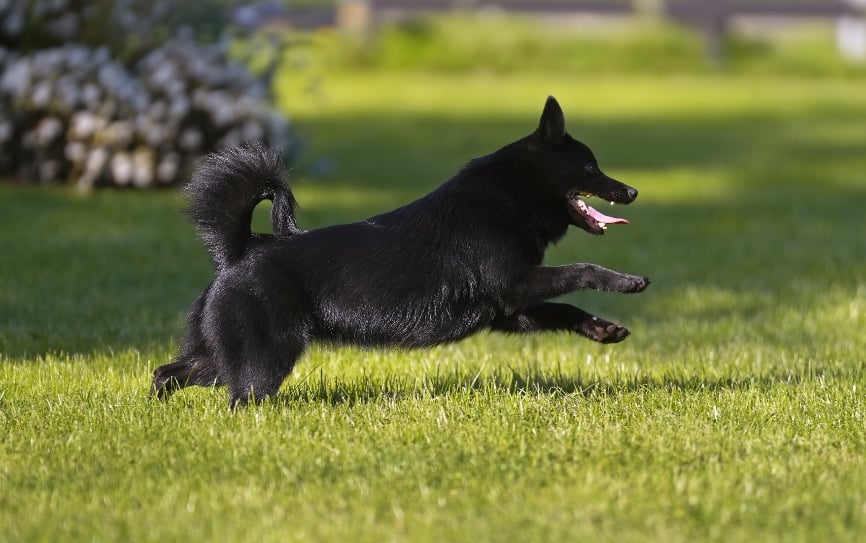Introduction to Boston Terriers
Boston terriers are smart and friendly little dogs that are fun to be around and very affectionate among family members. They are non-sporting group dogs that are very popular and have been an established breed for quite some time. It’s very easy to love Boston terriers because of their temperament and lively nature, although these pups can be energetic and spunky, which is something to be aware of when you first bring a Boston terrier into your home.
Read on to learn more about the Boston terrier breed to determine whether this is the right kind of dog for you and also why pet insurance is such a good idea to get if you have a Boston terrier.
Size of Boston Terriers
Fully grown Boston terriers can weigh anywhere from 12 to 25 pounds, which is a sizable range. There are three weight categories that Boston terriers fall into: 15 pounds or less, 15 to 20 pounds, and 20 to 25 pounds. These are sturdy and compact dogs that are a great size for many dog lovers.
Here’s how big you can expect your Boston terrier to get when fully grown.
| Weight Chart | 3 months | 6 months | 9 months | 12 months |
| Male and female Boston terriers | 4 to 7 pounds | 7 to 14.3 pounds | 10 to 21 pounds | 12 to 25 pounds |
Female Boston terriers usually weigh in the 12 to 20-pound range, while males are more like 15 to 25 pounds when they reach their adult weight. Also, the average height of a Boston terrier is between 15 and 17 inches tall at the shoulder, with males usually being about an inch taller than females, although some female Bostons can be just as large as their male counterparts.
Characteristics of Boston Terriers
The Boston terrier is a moderately adaptable dog that can be a good dog to have for first-time pet parents. People love these pups because of how friendly they are and how easy they are to groom. Although Boston terriers are small, they have quite a bit of energy and do well in environments where they get plenty of attention and moderate amounts of exercise. Although every Boston terrier is unique, these are examples of commonalities that most of these dogs share because of their genetics.
As you get to know a Boston terrier’s personality, here’s what you can expect based on his or her breed characteristics:
| Breed Characteristic | Level (High, Medium, Low) |
| Affectionate with People | High |
| Good with Kids | High |
| Good with Pets | High |
| Need for Exercise | Medium |
| Energy Level | Medium |
| Intelligence Level | Medium |
| Able to Be Trained | Medium |
| Amount of Barking | Medium |
| Amount of Shedding | Low |
Boston Terrier Breed Standard Information
The general appearance of a Boston terrier is smooth-coated, short-headed, and compactly built with a short tail. These dogs can be brindle, seal, or black in color with even white markings. Their markings are especially distinctive and something that makes them truly unique. In fact, these pups look like they are permanently dressed to impress and wearing a tuxedo!
They have strong limbs and look determined, strong, and active. There are certain characteristics that disqualify a Boston terrier from an official American Kennel Club show or competition, such as blue eyes, a docked tail, solid black color, or Dudley nose (a pink rather than black nose).
Here is an overview of the breed standard information for Boston terriers:
Head:
- Square skull that is flat on top
- Eyes set wide apart, large, round, and dark
- Small and erect ears
- Short, square, and wide muzzle
- Kind and alert expression
Neck, Topline, Body:
- Balanced neck
- Level topline with rump slightly curved
- Deep and good width for chest
- Tail set on low and short
Forequarters:
- Shoulders sloping and well laid back
- Elbows neither in nor out
- Forelegs moderately wide apart
- Dewclaws may be removed
Hindquarters:
- Thighs strong and well-muscled
- Feet small and compact
- Short nails
Coat:
- Short, smooth, bright, and fine texture
Color:
- Brindle, seal, or black with white markings
Caring for Boston Terriers
Boston terriers are a joy to care for, but they can be stubborn. This is why early socialization is important for this dog breed, as with all dogs. They are lively little dogs but ones that don’t need a ton of space to get the exercise they need. Boston terriers are indoor dogs that thrive on praise and motivation through positive reinforcement.
The grooming needs of a Boston terrier are pretty easy because of their short coats and minimal shedding. This is also a great dog if you have children or other dogs in the house because if socialized early, they get along with pretty much everyone and are a sturdy size to hold their own while still being gentle.
Here are some general tips for taking the best care of a Boston terrier:
Best Living Environments:
- Houses with fenced yard
- Apartments with no yard are fine too
- Kept indoors during heat and cold
- Prone to separation anxiety so don’t leave alone all day
Type of Exercise:
- Running around an indoor space or yard
- Walks on a leash
- Games of fetch in the yard
- Nothing too strenuous because they are prone to breathing trouble
Mental Enrichment:
- Sensitive dogs that want your praise
- Frequent interactions with family members
- Basic obedience training and fun tricks
- Puzzle toys
Training Strategies:
- Positive reinforcement not punishment
- Reward with small treats and a kind voice
Grooming Tips:
- Brush the coat weekly with a firm bristle brush
- Only occasional baths
- Dry shampoo or damp cloth for cleaning between baths
- Brush teeth daily to prevent gum disease
- Trim nails as needed if not worn down from exercise
Common Health Problems of Boston Terriers
The life span of a Boston terrier is about 10 to 14 years old despite their having some significant health concerns including brachycephalic syndrome, patellar luxation, and allergies. You occasionally see cataracts, seizures, deafness, and demodicosis with Boston terriers as well. It is recommended that these dogs get tested by a vet for their knees, eyes, and hearing to detect potential issues before breeding.
Boston terriers do not do well in hot temperatures, so it is important to keep a close watch on these dogs’ health when they are outside in the summer. They can also be sensitive to anesthesia, which is important to be aware of if your Boston terrier is scheduled for a dental cleaning or surgery.
Overall, these are some of the most common health issues that arise with Boston terriers:
- Brachycephalic syndrome
- Cataracts
- Legg-Calve-Perthes Disease
- Heart murmurs
- Patellar luxation
- Allergies
- Cherry eye
- Deafness
- Brain tumors
- Reverse sneezing
Diet and Nutrition for Boston Terriers
When you feed Boston terriers, make sure that your dog eats meals rather than leaving food out throughout the day. This is because Bostons are prone to weight gain if they are fed too much and not kept on a regular eating schedule. Limit the number of treats you give your dog to keep their weight under control.
Most adult Bostons will thrive when eating a high-quality, nutritionally complete and balanced adult dog food. Puppies should eat puppy food until they are around 10 to 12 months old. If you feed your Boston a homemade dog food, make sure you are working from a recipe that is designed by a veterinary nutritionist and that is appropriate for your dog’s age and health status.
Feed the amount of dog food needed to keep your pet slim. You should be able to see your Boston terrier’s waist and feel (but not see) the ribs without having to press too hard. In general, puppies need more calories per day than do adults, but a dog’s needs will vary with their activity level and other factors. Divide the total amount of food for the day into at least two meals for adults and three to five meals for puppies. Place the food out in a bowl at approximately the same time each day.
Talk to your veterinarian if you have any questions about your dog’s diet or health.
Where to Adopt or Purchase Boston Terriers
The Boston Terrier Club of America is the primary breed organization for this type of dog in the U.S. This organization offers general information about these dogs, as well as health tips, events, and a listing of breeders.
There are also many rescue groups in the U.S. that focus on Boston terriers in need of loving homes. For example, these include the Midwest Boston Terrier Rescue, Boston Buddies in Southern California, the Boston Terrier Club of Maryland Rescue, and Alabama Boston Terrier Rescue.
Related Breeds
If you like the size, characteristics, and personality of Boston terriers, there are other similar dogs that you might enjoy spending time with as well. Check out these related breeds before you make a decision to adopt or purchase a new dog.
- French bulldog
- Pug
- Affenpinscher
- Boxer
- Border terrier
Pet Insurance for Boston Terriers
All across the country, pet parents of Boston terriers turn to Healthy Paws for peace of mind that they can always afford to pay vet bills when new illnesses or injuries happen. We offer pet insurance for Boston terriers ranging from eight weeks to 14 years of age and cover everything from cancer to emergency care, genetic conditions, and alternative care.
To learn more about why customers rate us #1 and the benefits of insuring your Boston terrier as soon as possible, contact us online or at 855-898-8991. Or if you’re ready to take the best care of your pup’s health for the long-term, fill out our form to get your Boston terrier pet insurance quote today.
